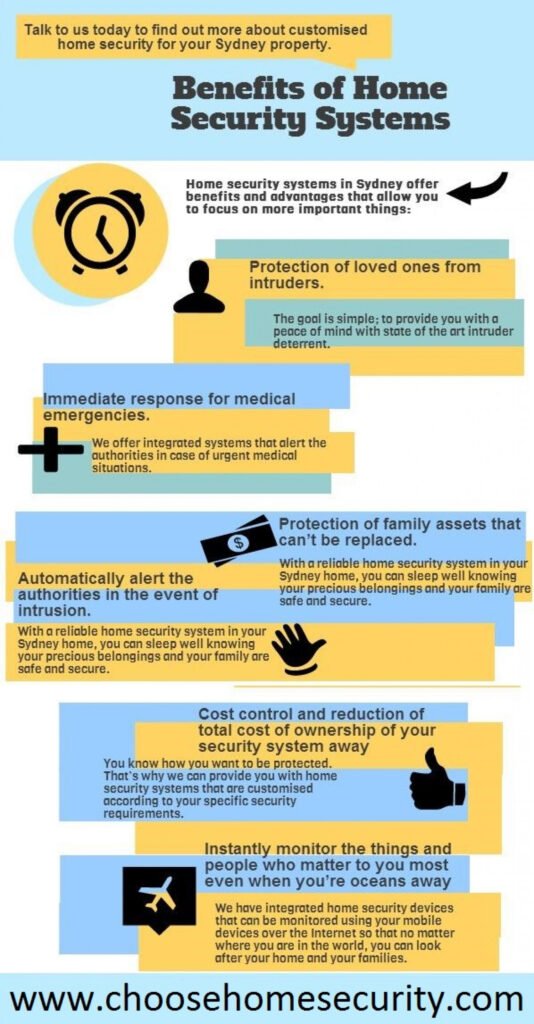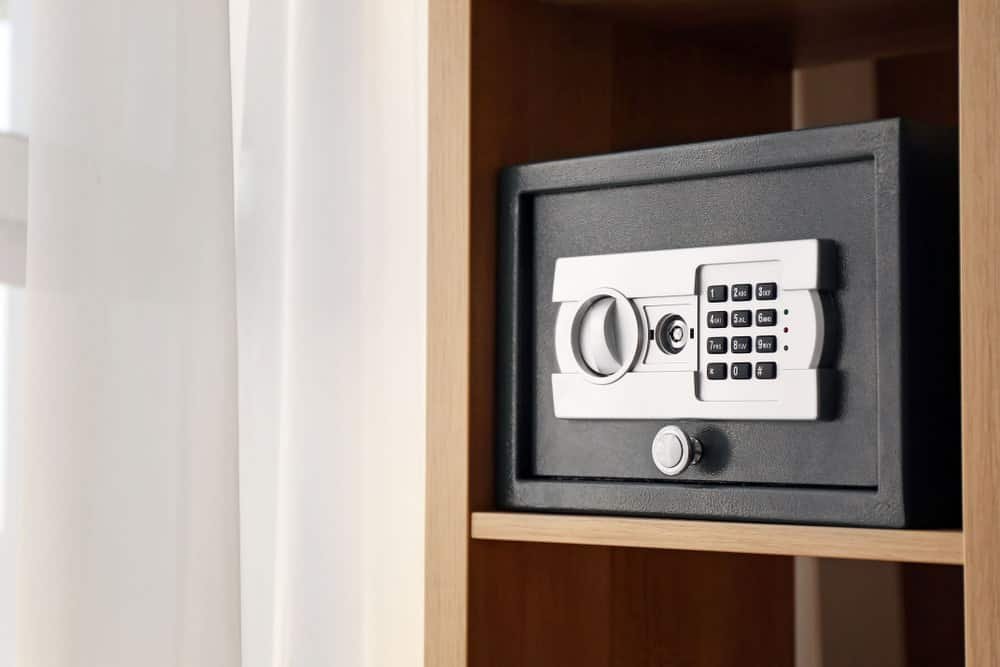In this article, we’ll be discussing the importance of home security and how it can help protect your loved ones and valuables. We’ll be exploring different brands such as Ring, Nest, Arlo, Wyze, SimpliSafe, Eufy Security, Blink, August Home, Honeywell Home, Ring Alarm, Vivint, Abode, Swann, Reolink, TP-Link Kasa, Logitech Circle, ADT, Schlage, First Alert, and Kangaroo. By the end of this article, you’ll have a better understanding of why investing in home security is crucial for ensuring the safety and well-being of your family and belongings.
The Importance of Home Security: Protecting Your Loved Ones and Valuables
1. Understanding the Importance of Home Security
1.1 Why Home Security is Essential
When it comes to your home, safety should be a top priority. Home security plays a crucial role in ensuring the well-being of your loved ones and the protection of your valuable belongings. Without a proper security system in place, you may be leaving your home vulnerable to break-ins and endangering the people and items that matter most to you.
1.2 The Impact of Home Invasions
Home invasions can have a devastating impact on individuals and families. Not only can they result in the loss of valuable possessions, but they can also cause significant emotional trauma and a sense of violation. The aftermath of a break-in can leave lasting scars, making it important to take preventive measures to safeguard your home and prevent such incidents from occurring.
1.3 Protecting Your Loved Ones and Valuables
One of the primary reasons for investing in a home security system is to protect your loved ones, including your family members, pets, and yourself. A comprehensive security system can act as a deterrent to potential intruders, providing peace of mind knowing that your loved ones are safe within the confines of your home. Additionally, a home security system can help protect your valuable possessions, such as electronics, jewelry, and sentimental items that hold significant personal value.
2. Choosing the Right Home Security System
2.1 Evaluating Your Security Needs
Before choosing a home security system, it’s essential to evaluate your specific security needs. Consider factors such as the size and layout of your home, the crime rate in your area, and any specific vulnerabilities that may exist. By understanding your security requirements, you can make an informed decision when selecting a home security system.
2.2 Exploring Different Types of Home Security Systems
There are various types of home security systems available in the market today. Some common options include burglar alarm systems, video surveillance systems, and access control systems. Each type offers its own set of features and advantages, so it’s important to explore the different options to find a system that aligns with your needs and preferences.
2.3 Comparing Top Home Security Brands
When choosing a home security system, it’s important to consider reputable brands that have a proven track record in the industry. Some popular brands to consider include Ring, Nest, Arlo, Wyze, SimpliSafe, Eufy Security, Blink, August Home, Honeywell Home, Ring Alarm, Vivint, Abode, Swann, Reolink, TP-Link Kasa, Logitech Circle, ADT, Schlage, First Alert, and Kangaroo. Compare their features, customer reviews, and reliability to determine which brand offers the best solution for your home security needs.

3. Key Features to Look for in Home Security Systems
3.1 Video Surveillance and Monitoring
Video surveillance is a critical feature to look for in a home security system. It allows you to monitor your home in real-time and provides visual evidence in the event of a break-in. Look for systems that offer high-definition video quality, night vision capabilities, and the ability to store recorded footage securely.
3.2 Motion Detection and Alarms
Motion detection sensors are essential for detecting any suspicious activity around your home. When triggered, they can activate an alarm or send an alert to your smartphone, notifying you of potential intrusions. Ensure that the home security system you choose has reliable motion detection capabilities and customizable alarm settings.
3.3 Mobile Access and Remote Monitoring
In today’s digital age, having mobile access and remote monitoring capabilities is a valuable feature in a home security system. With these features, you can monitor your home, arm or disarm the security system remotely, and receive real-time alerts on your smartphone, providing you with peace of mind even when you’re away.
4. The Role of Smart Home Technology in Home Security
4.1 Integration with Smart Home Devices
Smart home technology has revolutionized the way we secure our homes. Many home security systems now integrate with smart home devices such as smart locks, smart lights, and smart thermostats. This integration allows for seamless control and automation, enhancing the overall security and convenience of your home.
4.2 Benefits of a Connected Home Security System
A connected home security system offers several benefits. It allows you to remotely control and monitor various aspects of your home security system through a centralized platform. You can receive alerts, access live video feeds, and even control other smart devices in your home with ease, all from your smartphone or smart home hub.
4.3 Voice Control and Automation
With the advent of voice-controlled virtual assistants, such as Amazon Alexa or Google Assistant, you can now control your home security system using voice commands. This hands-free control enables you to arm or disarm the security system, lock or unlock doors, and control other connected devices, making it more convenient and user-friendly.

5. DIY vs. Professional Home Security Installation
5.1 Pros and Cons of DIY Installation
DIY installation of a home security system can be an appealing option for those who are budget-conscious or technologically savvy. It allows you to customize the installation according to your preferences, saving on installation costs. However, it does require a certain level of technical expertise, and any mistakes in installation can compromise the effectiveness of the system.
5.2 Benefits of Professional Installation
Professional installation offers the advantage of expertise and experience. Certified technicians will ensure that the system is installed correctly and optimally positioned for maximum security coverage. Additionally, professional installation often includes a warranty or service agreement, providing ongoing support and maintenance for your home security system.
5.3 Cost Considerations
When considering DIY versus professional installation, it’s essential to weigh the cost factors. DIY installation typically has lower upfront costs, as you’re not paying for professional labor. However, professional installation may provide a higher level of assurance and expertise, even though it may come at a higher cost.
6. Additional Home Security Measures
6.1 Securing Windows and Doors
While a home security system plays a crucial role in safeguarding your home, it’s equally important to address basic security measures. Ensure that all windows and doors are secure, with robust locks and reinforced frames. Consider installing security film on windows to make them more resistant to break-ins.
6.2 Outdoor Lighting and Landscape Design
Well-lit exteriors can deter potential intruders by eliminating hiding spots and making suspicious activity more visible. Install outdoor lighting around the perimeter of your home, focusing on entrances and pathways. Additionally, consider your landscape design to eliminate potential hiding spots near windows and doors.
6.3 Home Security Tips for Vacation
When going on vacation, it’s important to take extra precautions to protect your home. Inform trusted neighbors or friends about your absence and ask them to keep an eye on your property. Set timers on lights or use smart plugs to create the illusion of occupancy. Avoid announcing your vacation on social media, as it can alert potential burglars to an empty home.

7. Common Home Security Mistakes to Avoid
7.1 Neglecting Regular Maintenance and Upgrades
Home security systems require regular maintenance and occasional upgrades to ensure their effectiveness. Neglecting routine maintenance tasks, such as battery replacement or software updates, can lead to system malfunctions or vulnerabilities. Stay proactive in maintaining your home security system to ensure its optimal performance.
7.2 Poor Password Protection and Network Security
Weak passwords and poor network security can compromise the integrity of your home security system. Ensure that you have strong, unique passwords for your home security devices and your Wi-Fi network. Regularly update passwords and enable additional security measures, such as two-factor authentication, to further protect your system.
7.3 Not Utilizing Security Features Properly
Familiarize yourself with the features and capabilities of your home security system to optimize its effectiveness. Take advantage of features such as geofencing, which automatically adjusts your security settings based on your location. Understand how to customize your alarm settings, assign user codes, and make the most of the available security features.
8. Understanding the Legal Aspects of Home Security
8.1 Privacy Laws and Home Surveillance
When using video surveillance in and around your home, it’s important to understand the privacy laws and regulations that apply in your jurisdiction. Familiarize yourself with the legal requirements, such as obtaining consent if video surveillance extends beyond the boundaries of your property.
8.2 Home Security Systems and Insurance
Many insurance companies offer discounts on homeowner’s insurance for homes with security systems in place. Check with your insurance provider to determine if you’re eligible for any policy discounts by installing a home security system. Additionally, ensure that your system meets the requirements set by your insurance company to qualify for coverage.
8.3 Legal Responsibilities of Homeowners
As a homeowner, it’s important to be aware of your legal responsibilities regarding home security. Take reasonable measures to secure your property and protect yourself and others from injury. Failure to fulfill these responsibilities could have legal consequences in the event of a security breach or accident on your property.

9. Stay Informed: Home Security Industry Trends and Innovations
9.1 Advancements in Video Technology
The home security industry is constantly evolving, with advancements in video technology being at the forefront. High-resolution cameras, improved video compression, and cloud storage options are just a few examples of the advancements shaping the future of home security.
9.2 Artificial Intelligence and Machine Learning
Artificial intelligence and machine learning are revolutionizing home security systems. These technologies can analyze patterns, detect anomalies, and improve the overall efficiency of security systems. Look for systems that incorporate these advancements for enhanced security and convenience.
9.3 Integration of Home Security with Home Automation
The integration of home security systems with home automation is becoming increasingly popular. By combining security features with automation capabilities, homeowners can control various aspects of their home, including security, lighting, temperature, and more, all from a centralized platform.
10. Conclusion
Investing in a reliable home security system is not just a luxury but a necessity. The importance of home security cannot be overstated, as it plays a crucial role in protecting your loved ones and valuables. By understanding your security needs, choosing the right system, and implementing additional security measures, you can create a safe and secure environment for you and your family. Stay informed about the latest industry trends and innovations to ensure that your home security system continues to provide optimal protection well into the future.

